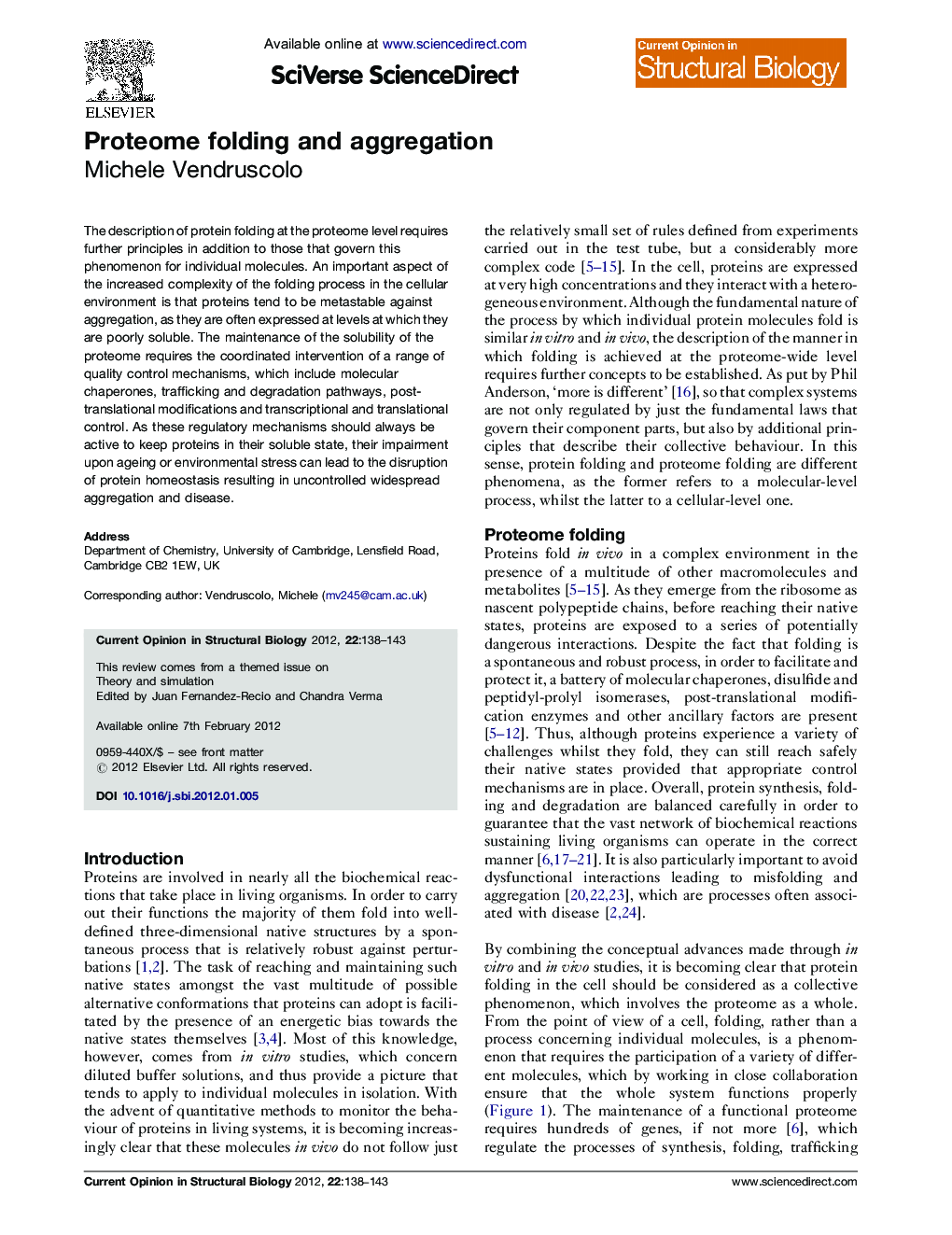| Article ID | Journal | Published Year | Pages | File Type |
|---|---|---|---|---|
| 1979190 | Current Opinion in Structural Biology | 2012 | 6 Pages |
The description of protein folding at the proteome level requires further principles in addition to those that govern this phenomenon for individual molecules. An important aspect of the increased complexity of the folding process in the cellular environment is that proteins tend to be metastable against aggregation, as they are often expressed at levels at which they are poorly soluble. The maintenance of the solubility of the proteome requires the coordinated intervention of a range of quality control mechanisms, which include molecular chaperones, trafficking and degradation pathways, post-translational modifications and transcriptional and translational control. As these regulatory mechanisms should always be active to keep proteins in their soluble state, their impairment upon ageing or environmental stress can lead to the disruption of protein homeostasis resulting in uncontrolled widespread aggregation and disease.
► Proteome folding is regulated by more complex principles than protein folding. ► Proteins tend to be metastable against aggregation in the cellular environment. ► Quality control mechanisms are always be active to prevent aggregation.
